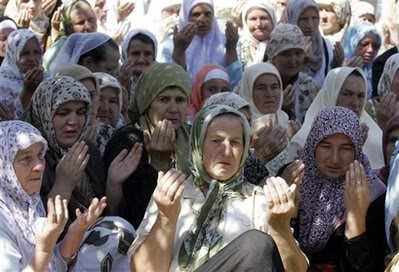 Srdja Trifkovic
Srdja Trifkovic

On October 14 and 15 an interesting conference was held at the Patriarchate of Peć, in Kosovo. Organized by Bishop Jovan (Ćulibrk) of Lipljan, The Balkans and the Middle East Mirroring Each Other marked the centenary of the outbreak of the First Balkan War and the subsequent liberation of Southern Serbia after four centuries of Ottoman misrule.

Almost a year has passed since we last took note of Turkey’s increasing clout in three key areas of neo-Ottoman expansion: the Balkans, the Arab world, and the predominantly Muslim regions of the former Soviet Union. Each has played a significant part in reshaping the geopolitics of the Greater Middle East over the past decade.

The Arab Spring has shown its true face. Ambassador Christopher Stevens did not create it, but he was directly involved in helping unleash the dormant monster which destroyed him. Every actor in the U.S. foreign policy-making establishment is responsible.

Over the past two decades the decision-makers in Washington have acquired and internalized a bias in Balkan affairs which falls outside the parameters of rational debate.

Now this is not the end. It is not even the beginning of the end. But it is, perhaps, the end of the beginning, quipped Churchill in November 1942, following Montgomery’s modest success at El Alamein. The same applies to Tomislav Nikolić’s victory in the second round of Serbia’s presidential election on May 20.

In the April 24 issue of The Jewish Chronicle (UK) a polemicist by the name of Oliver Kamm takes The Jerusalem Post to task for publishing an article last February “by one Srdja Trifkovic claiming that US recognition of Kosovo was an advance for jihadism.”

(Published in The Jerusalem Post on February 14 and available online at JPost.com)
February 17 marks the fourth anniversary of Kosovo’s unilateral declaration of independence from Serbia. Since that time successive Israeli governments have come under pressure from Washington to recognize Kosovo, but on this issue the raison d’etat has wisely prevailed across the political spectrum.

Over the past decade Prime Minister Rejep Tayyip Erdoğan’s government and his AKP (Justice and Development Party) have been successful in undermining Mustafa Kemal Ataturk’s legacy and the character of the state founded upon that legacy. What remains is an increasingly empty shell of constitutional secularism.

It’s been some years since Tom Fleming and I have indulged in seven-day mad dashes across the Balkans, speaking, lecturing and giving interviews, meeting interesting people over good food and drink. Last December’s tour had the tempo and feel of the old times, but it was on balance a melancholy affair. After two decades of trials and tribulations, Serbia is on what appears to be an irreversible downward spiral.

An Orthodox church was set ablaze in the southwestern part of the Former Yugoslav Republic of Macedonia (FYROM) on January 30. The incident reflects raising tensions between local Slavs and Albanians, more than a decade after an Albanian rebellion brought FYROM to the verge of an ethnic war. It also evokes memories of the early stages of the conflict in Kosovo, in the late 1980s.








